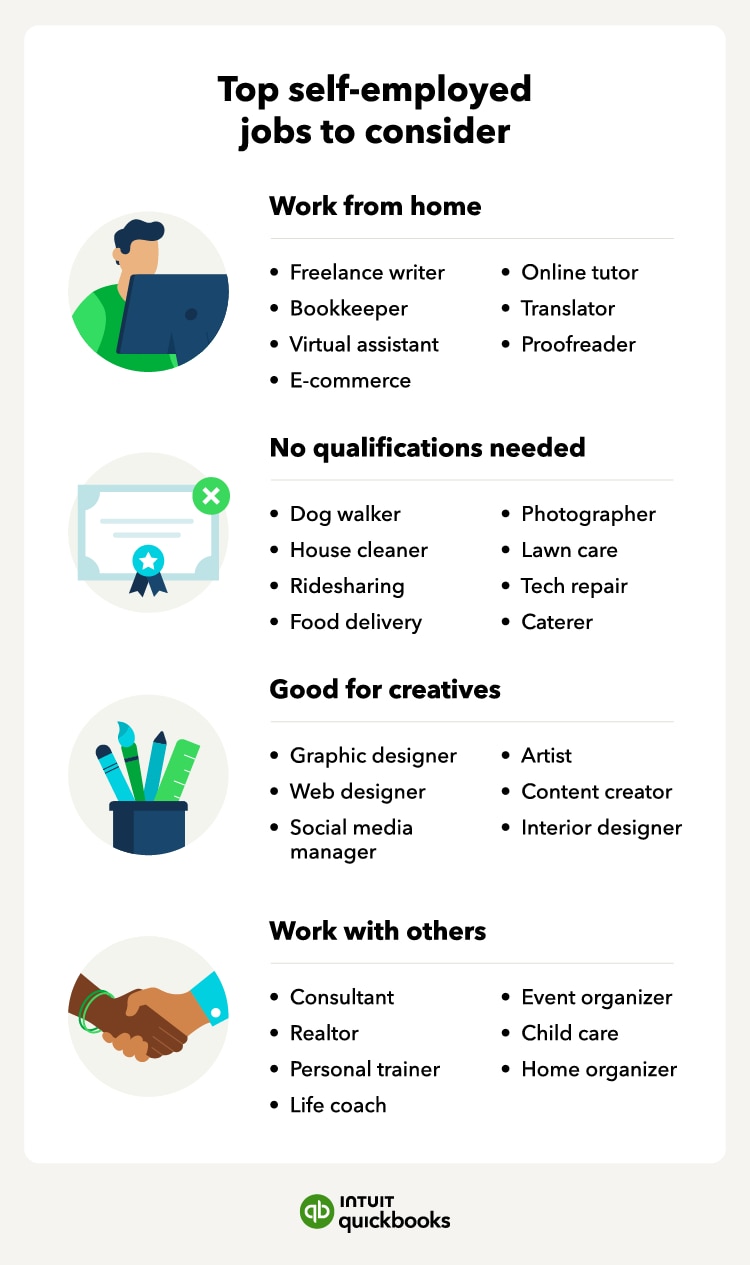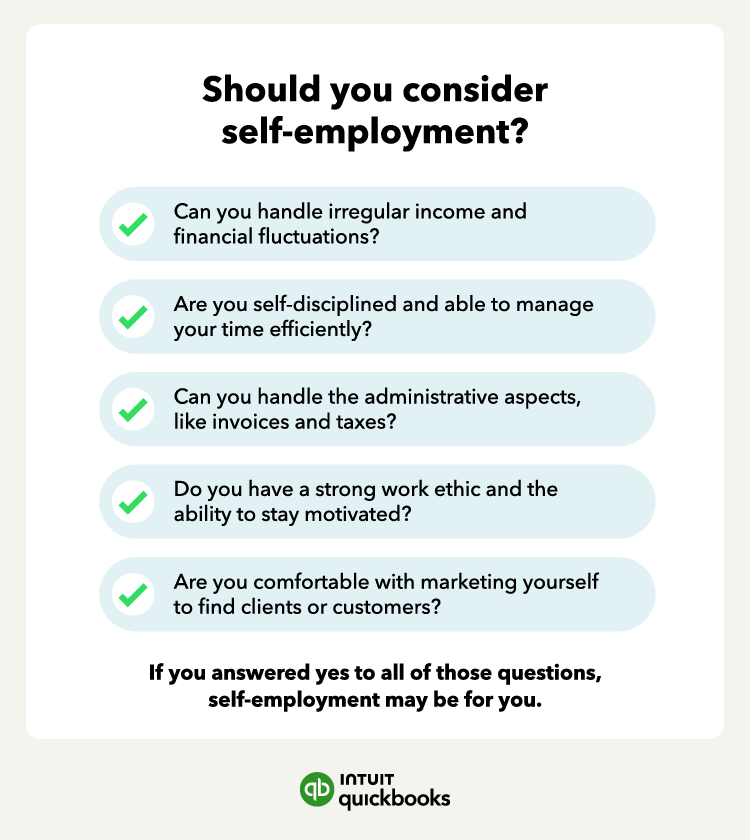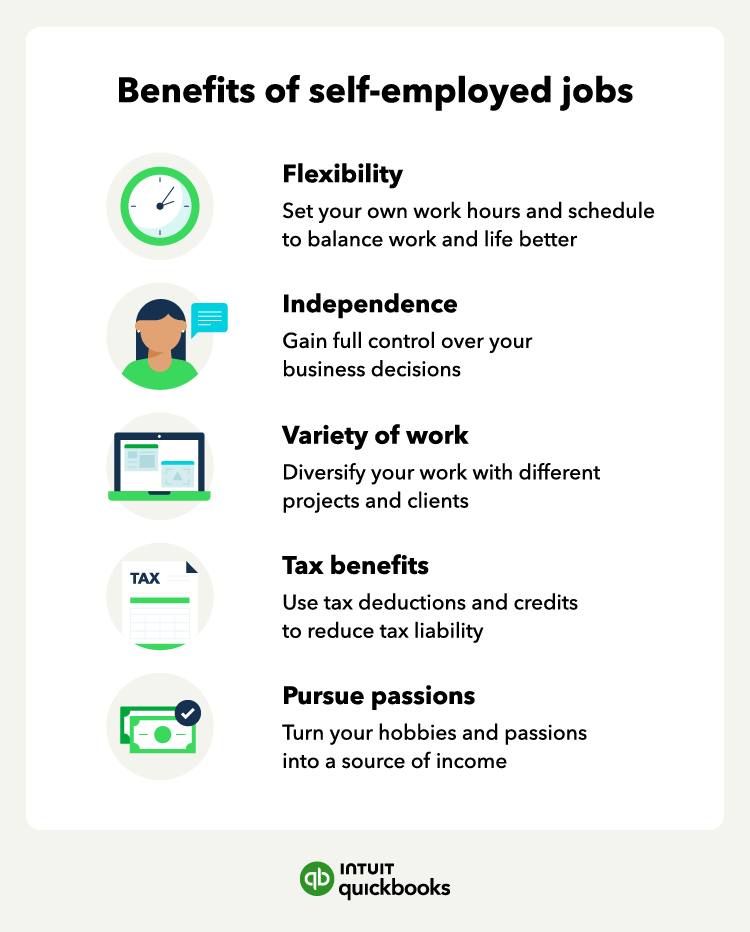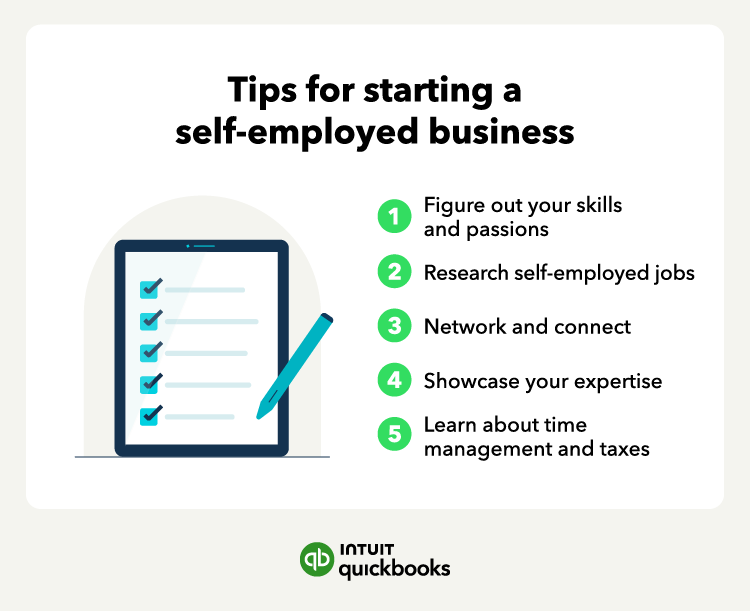In this ever-evolving work landscape, self-employed jobs can be an attractive option for individuals seeking flexibility and independence. Working for yourself can come with various benefits, such as choosing when and where you want to work, as well as potential self-employed tax deductions.
Whether you possess a creative flair, specialize in a niche field, or have a passion for entrepreneurship, there’s a self-employed job suited for you. These jobs can give self-employed workers financial independence and the ability to tap into natural talents for work opportunities.
















